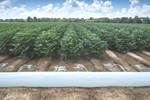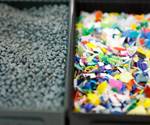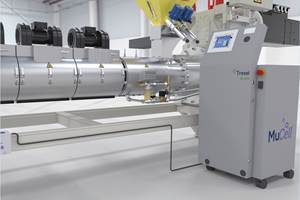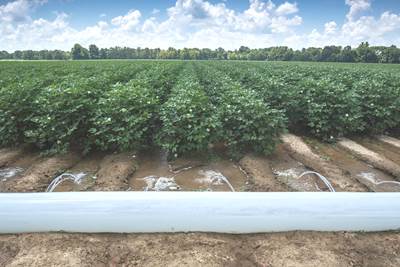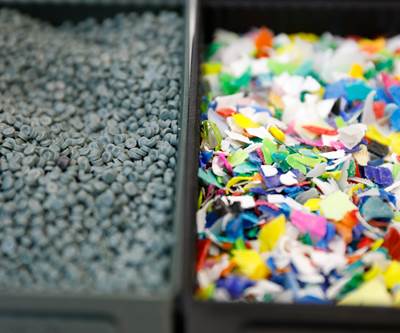Lux Research: No Singular Technology to Command Plastic Recycling
Lux Research report takes a look at the economic forces driving growth across the four main plastic recycling technologies.
A new Lux Research report examines the . The report looks at four of the main plastic waste recycling processes – mechanical recycling, depolymerization, pyrolysis and solvent-based recycling – and analyzes the factors impacting the economic viability of each.
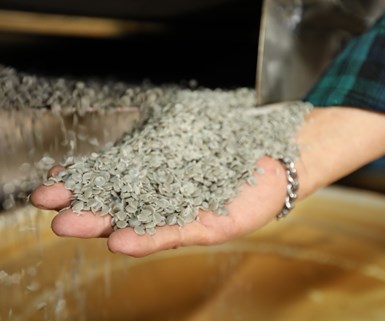
Dow to combine its virgin polyethylene resins with Avangard Innovative’s pellets made from post-consumer resin (PCR) plastic film.
The report says that in the near-term future, there’s not going to be one technology that will take a commanding market lead as market conditions and global public policy will significantly impact each technology.
"The economics of plastic waste recycling are in continuous flux, with political and economic winds impacting the direction of the four main recycling technologies," said Charles Willard, Lux Senior Research Associate and author of the report.
The four types of recycling technologies studied are:
- Mechanical recycling – The most common form of plastic recycling due to its cheap and simple nature. However, due to its reliance on inexpensive plastic feedstock, mechanical recycling is particularly susceptible to dips in feedstock supply. China's recent ban on plastic waste has increased that supply by 45%; however, Lux expects global recycling capacity to increase overall, increasing competition and limiting short-term gains.
- Depolymerization – Arguably one of the most effective plastic recycling techniques with its ability to convert polyethylene terephthalate into virgin-quality monomer precursors, the process is three times the cost of mechanical recycling and heavily reliant on low or negative feedstock prices. This likely means that even with an increase in supply, depolymerization will remain a niche form of recycling.
- Pyrolysis – Able to address mixed plastic waste streams in ways mechanical recycling cannot, pyrolysis, though energy intensive, could fill the gap in this area left by mechanical recycling. In the event that petroleum prices decrease, Lux predicts pyrolysis will alter its product distillation stream to target alternative chemical markets, partially insulating it from major market fluctuations.
- Solvent-based recycling – Like pyrolysis, solvent-based recycling can address mixed plastic waste streams, giving it a natural advantage over standard mechanical recycling. However, the process has had contamination issues, limiting its growth to postindustrial waste, and its reliance on the cost of solvent makes it susceptible to market factors that could inhibit growth.
"Each technology has its own set of factors determining its growth in the short term, and we predict growth in some areas and contraction in others, but not enough to dictate a particular winning technology."
With regards to if one technology will be more prevalent over the other in the U.S., Willard told Plastics Technology:
“Over the next few years, well-understood and relatively cheap mechanical recycling technologies will continue to dominate the plastic waste market share in the U.S.; however, investments from BP, Indorama Ventures, Shell, and other large players are showing a clear interest in introducing chemical recycling (gasification, pyrolysis, and depolymerization) technologies to the country. In 10 to 15 years, we expect mechanical recycling, gasification, and pyrolysis to have a prevalent position in the market; depolymerization to find a few profitable centers with enough low-quality (‘unrecyclable’) PET waste for commercial-scale operations; and solvent recycling to be limited to post-industrial waste or potentially overtake low-profit mechanical recycling waste streams such as polypropylene (see PureCycle Technologies).”
Related Content
ALPLA Launches ALPLArecycling Brand & Expands Food-Grade rPET Production
Global packaging powerhouse continues its growth as a major international plastics recycler.
Read MoreFoam-Core Multilayer Blow Molding: How It’s Done
Learn here how to take advantage of new lightweighting and recycle utilization opportunities in consumer packaging, thanks to a collaboration of leaders in microcellular foaming and multilayer head design.
Read MorePOGS Chooses Novodur ECO ABS for Childrens Headphones
Manufacturer of audio equipment for children will use INEOS Styrolution ABS with 50% recycled content.
Read MoreRepublic Services and Ravago in Partnership to Build Recycling Capacity
Planned facilities will have a combined output of 300 million pounds of recycled plastics.
Read MoreRead Next
An Agricultural Recycling 'Revolution'
Revolution is a leading brand bringing together expertise in recycling of agricultural film and manufacturing of plastic film, bags and irrigation tubing. The focus in all areas is to create sustainable closed-loop systems and use as much post-consumer resin as possible in all products manufactured.
Read MoreRecycling & Scrap Reclaim: Machinery Technology Advances as 'Circular Economy' Takes Hold
The circular economy and recycling were the top themes at K 2019, and machine builders responded with new systems to improve equipment performance and material quality.
Read MoreMaking the Circular Economy a Reality
Driven by brand owner demands and new worldwide legislation, the entire supply chain is working toward the shift to circularity, with some evidence the circular economy has already begun.
Read More
